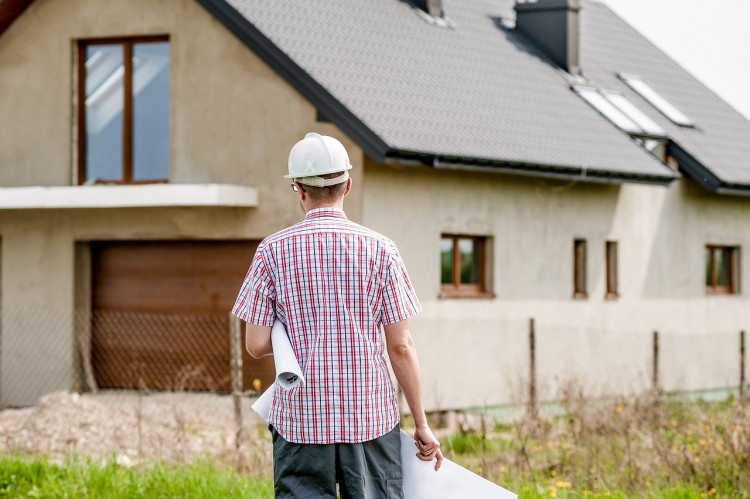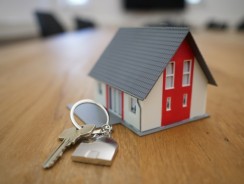
It is astonishing, though understandable, how paranoid people can become when it comes to all the potential threats to a property’s value. Homeowners are known to go reaching for the property experts when a neighbor so much as adds an extension to their home, when a new housing development begins construction a couple of blocks over, or when the workmen turn up with their diversion signs and gritting salt. And in these frantic moments, there is only one question on their lips – will this devalue my home?
The good news is that everything just listed will not devalue your home, or at least not significantly. The bad news is that there are many things that can, and not all of them are at all obvious. There is a veritable plethora of circumstances and developments in and around a property that can lead to a serious devaluation. Accordingly, it is useful to know what they are, how to look out for them, and what to do if you catch wind of one of these developments coming your way.
Yet, it is also useful to know that the property market is dynamic; indeed, there are few other assets that rise and fall in value as often as a house. If you are looking to sell in the near future (or if you are looking to buy at a discounted rate) then it helps to know that there is a lot to be said for simply sitting tight until the price impact upon your home fades away, or until some other development allows it to rise again. Nevertheless, there are a range of things that can devalue a home – some of which you can do something about, some you simply cannot.
There are of course the obvious factors that affect value. Antiquated bathrooms and kitchen fittings, a nearby busy road, lack of amenities, the closure of local business, and so on. It is a particularly foolish homeowner that isn’t constantly on the lookout for these things. But what about the less obvious things that can sneak up on you, slashing thousands off your property value before you even knew there was anything to worry about?
Did you know, for example, that certain wallpaper prints, laminate flooring, and roughcasting or pebble dash can knock thousands off your home’s value? And what about the invasive and infamous Japanese knotweed? Suffer an infestation of that sort and a house’s value can plummet.
Read on then for a list of all the surprising things that can devalue your home. Many of these factors are actually plenty common, but widespread knowledge of their danger is lacking. Let’s do something about that.
Your Home is Situated Close to a Bar
We often associate a thriving local scene with a high house value, right? But unless your home is located in a central or downtown part of a busy city, or within an area known for a lively atmosphere, being too close to a rowdy bar can seriously devalue your home. In practice, this applies to most suburban properties. Bear in mind, however, that a bar can be included in the list of local amenities that actually boost your home’s value – and it is only those situated within sight or earshot of noisy bar that will suffer.
You Have Noisy Neighbors
It’s obvious why potential buyers – especially professional couples and families – might be put off by noisy neighbors. However, many do not consider this a serious devaluing factor because, in most cases, noisy neighbors are not noisy all the time and many buyers might not even notice at first. Nonetheless, if you are unlucky enough to have a domestic argument, loud music or, heaven forbid, the clatter of an amateur drummer seeping through your thin walls when the home is being viewed or appraised, this could knock off some significant value.
Roughcasting/Pebble Dash
Roughcasting or pebble dash (the difference is only technical) has in the past been an occasional fad for new homes. However, for a long time now it has been almost universally loathed, known to turn away buyers the moment the house comes into sight. Accordingly roughcasting can be a major devaluing factor for your home. In the UK, where it was commonplace for decades, it is known to have a severe effect on value. It is considerably less common in America although prevalent in some parts of the country. Where America and the UK do not differ though is how much the local home-buying public despise the drab, gray façade of a roughcasted house.
Japanese Knotweed
In the history of life on Earth, this invasive species would win a whole host of evolutionary survival awards. Native, as the name suggests, to East Asia, Japanese knotweed (or Asian knotweed) has successfully established itself in countless locations across the northern hemisphere – and it is rarely welcome. Japanese knotweed grows fast and large and can be incredibly difficult to control. If you catch the beginnings of this plant around your home, then you could soon be facing up to serious loss of value for your home.
Ugly Wallpaper
What constitutes ugly wallpaper? When you consider how home interior fashions have changed over the years, you will notice a pattern that has seen endless styles of wallpaper go catastrophically out of fashion every decade or so. It is precisely this which makes a wallpaper “ugly.” And although it may seem horribly unfair (stripping and replacing wallpaper is not a massive or massively expensive job), ugly wallpaper has the potential to seriously devalue your home.
A Rude or Ridiculous Street Name
Here is one that most people will almost certainly not have considered when counting the potential factors that could devalue their home. But when you think about it, it’s easy to see how a street name can be important for the prestige of a house. People come to associate themselves with their street name. Whenever a letter is sent or a package is delivered, it can become apparent just what a hilarious address a person is living under. So if you find yourself living on Toad Suck Road, Booger Branch Road, or some other names that we can’t present here, then the joke, unfortunately, could be very much on you.










Author
Homesgofast com
Homesgofast.com is an international real estate portal and news source for Google news. Publishing international real estate, finance, homes and travel-related news and blogs for a targeted audience since 2002. Each news item is circulated to thousands of potential readers each day and is also available to the millions of people who sign up for Google news alerts. Find homes offered for sale and to rent direct from owners and some of the best real estate agents from over 35 countries